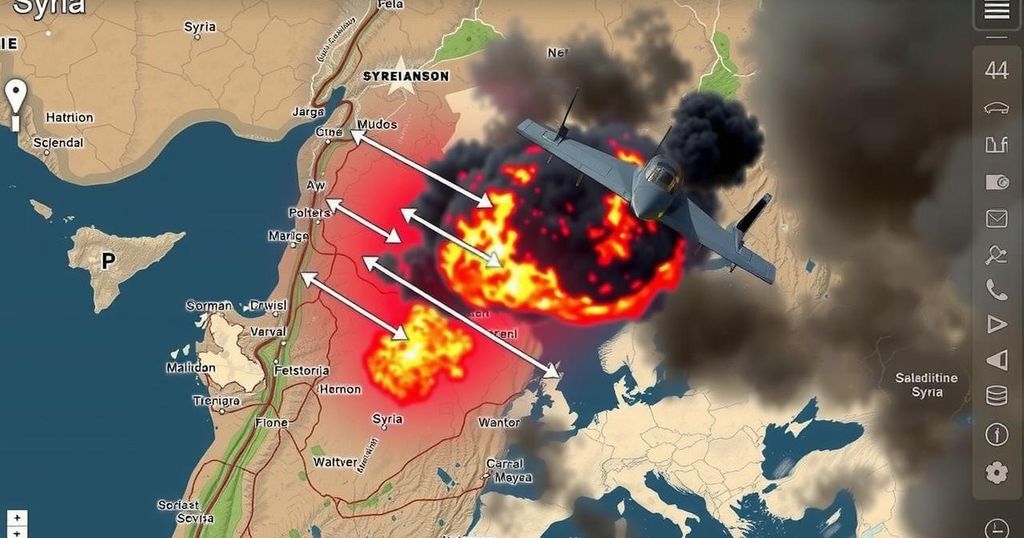Israeli Airstrike in Syria Results in Civilian Casualties Amid Ongoing Conflict

Israeli airstrikes in Syria resulted in the death of at least 11 individuals, primarily civilians, as it targeted a weapons depot linked to Bashar Assad’s forces. These strikes are part of Israel’s ongoing military operations seeking to counter threats posed by Iranian-backed groups in Syria. The Syrian civil war is marked by continued conflict and complex regional dynamics, particularly involving U.S.-allied Kurdish forces and Turkish-backed factions.
Recent airstrikes conducted by Israel in Syria have reportedly resulted in the deaths of at least 11 individuals, primarily civilians, according to the British-based Syrian Observatory for Human Rights. This attack targeted a munitions depot associated with the forces of former President Bashar Assad near Adra, close to Damascus. Al-Mayadeen, a Beirut-based pan-Arab news outlet, reported a lower death toll of six. The Israeli military has not publicly responded to these incidents, which are part of a broader strategy to degrade Syrian military capabilities tied to Iran.
Despite the ousting of Assad by Syrian insurgents just weeks prior, Israel continues its air reconnaissance and targeted strikes, viewing the presence of Iran-aligned militias in Syria as a persistent threat. The ongoing conflict has exacerbated tensions within the region, particularly with groups like the Syrian Democratic Forces clashing with Turkish-backed factions near the strategic town of Kobani. Reports emerged of missile assaults aimed at disabling radar systems in contested areas.
Israel’s campaign of airstrikes has significantly intensified since the onset of the Syrian civil war in 2011, with the intention of neutralizing perceived threats from Iranian resources in Syria. Calls from Syrian insurgents for Israel to halt these operations have gone unheeded, showcasing the complex dynamics at play within this multi-faceted conflict.
Amidst the chaos, the Kurdish-led Syrian Democratic Forces remain a critical ally of the United States, actively working to curb the influence and operations of the Islamic State, which continues to maintain sleeper cells throughout Syria. The interplay between regional powers and shifting alliances underscores the fragility of peace in the area.
The current airstrikes and military maneuvers illustrate the volatile environment in Syria, where both local and international interests collide, suggesting that instability will continue as long as these factions are active.
The ongoing conflict in Syria has been marked by a complex web of alliances and hostilities since the civil war erupted in 2011. Israel’s strategic interests have led to a campaign of airstrikes intended to undermine the capabilities of Iran-backed militias that support the Assad regime. The recent shift in power dynamics, particularly following the insurgents’ advance against Assad’s regime, presents a new layer of complexity, with Israel still maintaining its stance on preemptive military action. Furthermore, the Turkish-backed Syrian rebels’ engagement against Kurdish forces adds to the already intricate military landscape, intensifying the prospect for continued conflict.
In conclusion, the airstrike operation by Israel in Syria, which resulted in civilian casualties, underscores the ongoing insecurity and volatility within the region. As Israel persists in its military efforts to target Iranian military infrastructure, the broader conflict remains complicated by recent power shifts in Syria. The repercussions of these strikes affect not only civilians but also influence the dynamics between various armed factions operating within Syria. The delicate balance of power continues to pose significant challenges for achieving lasting peace in the region.
Original Source: www.euronews.com








